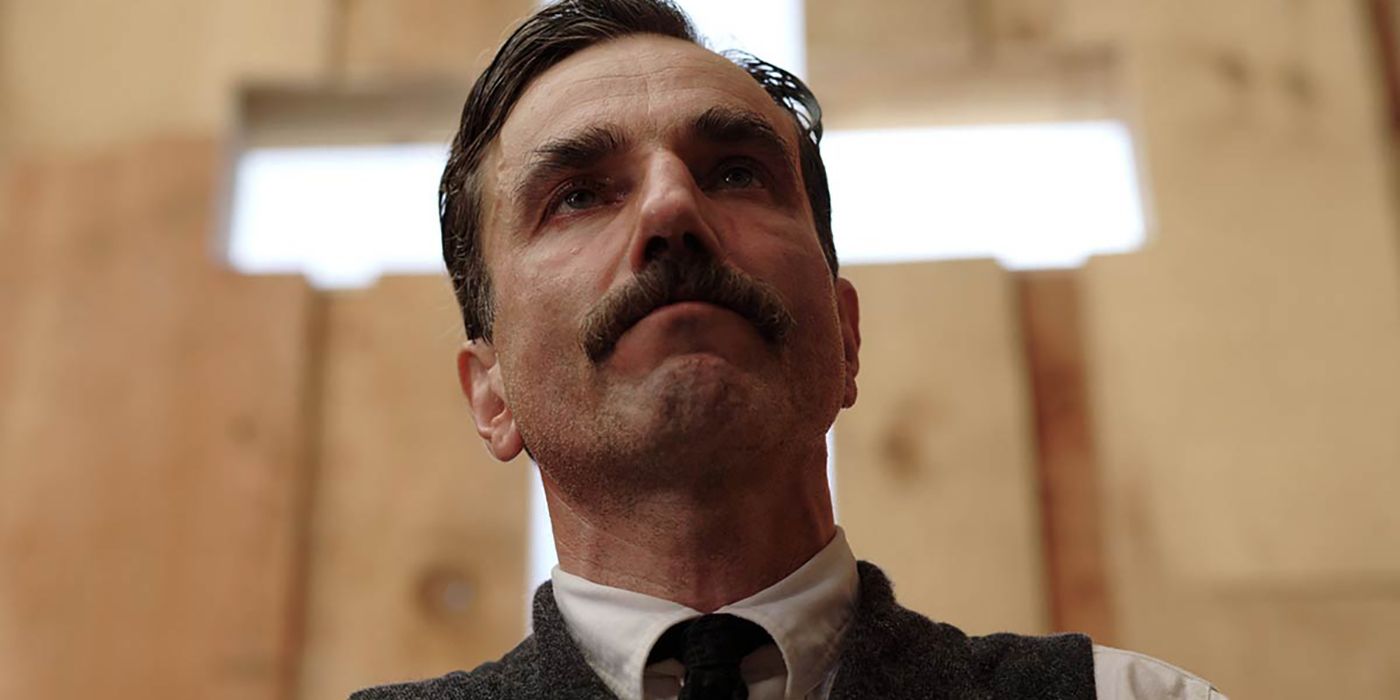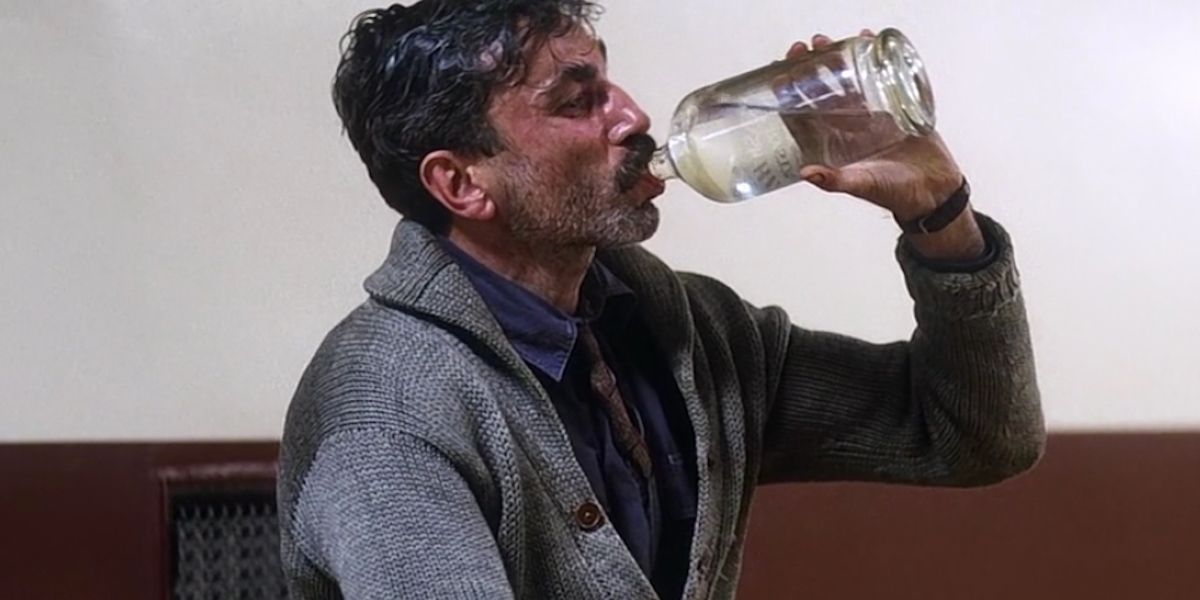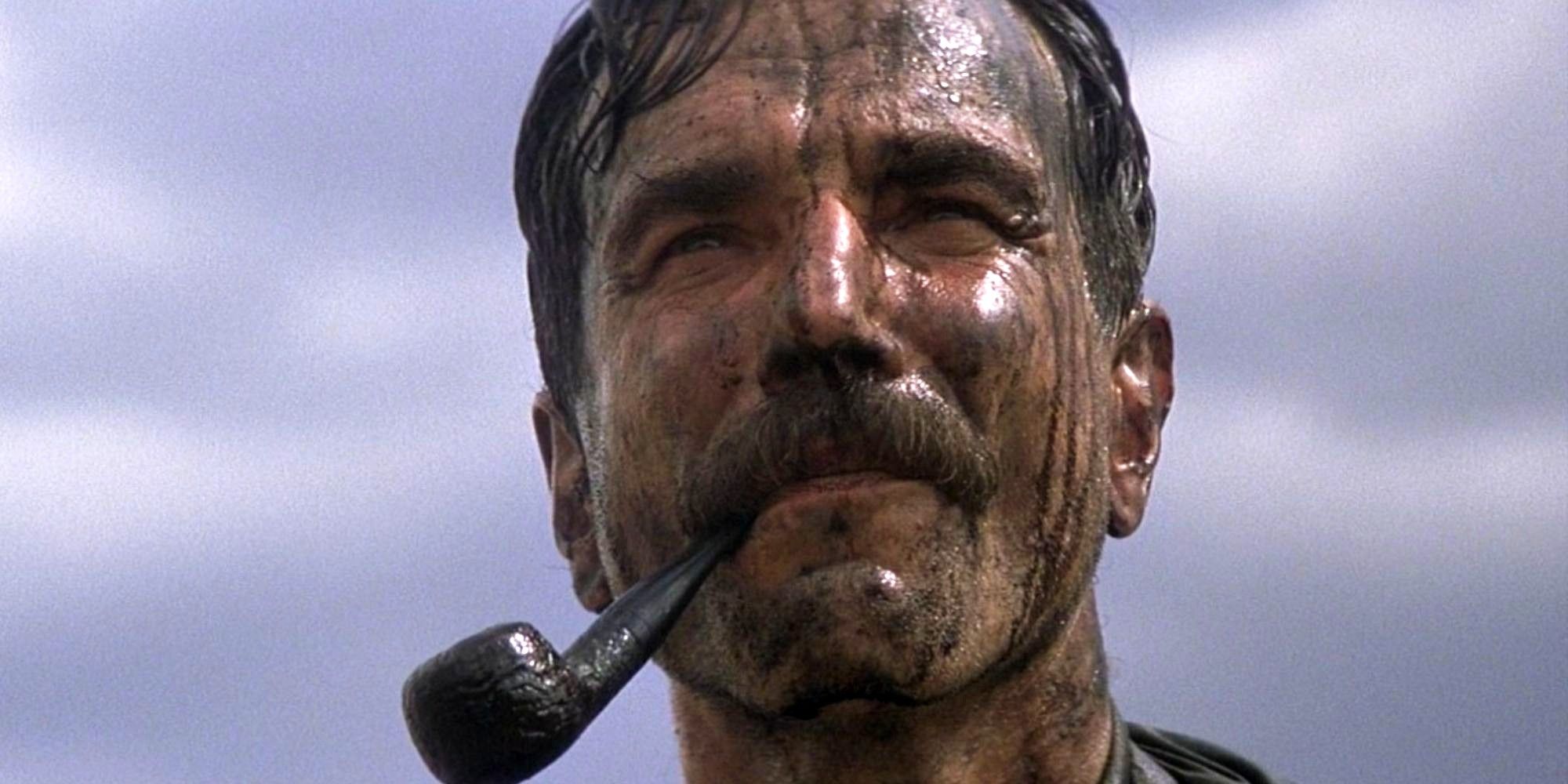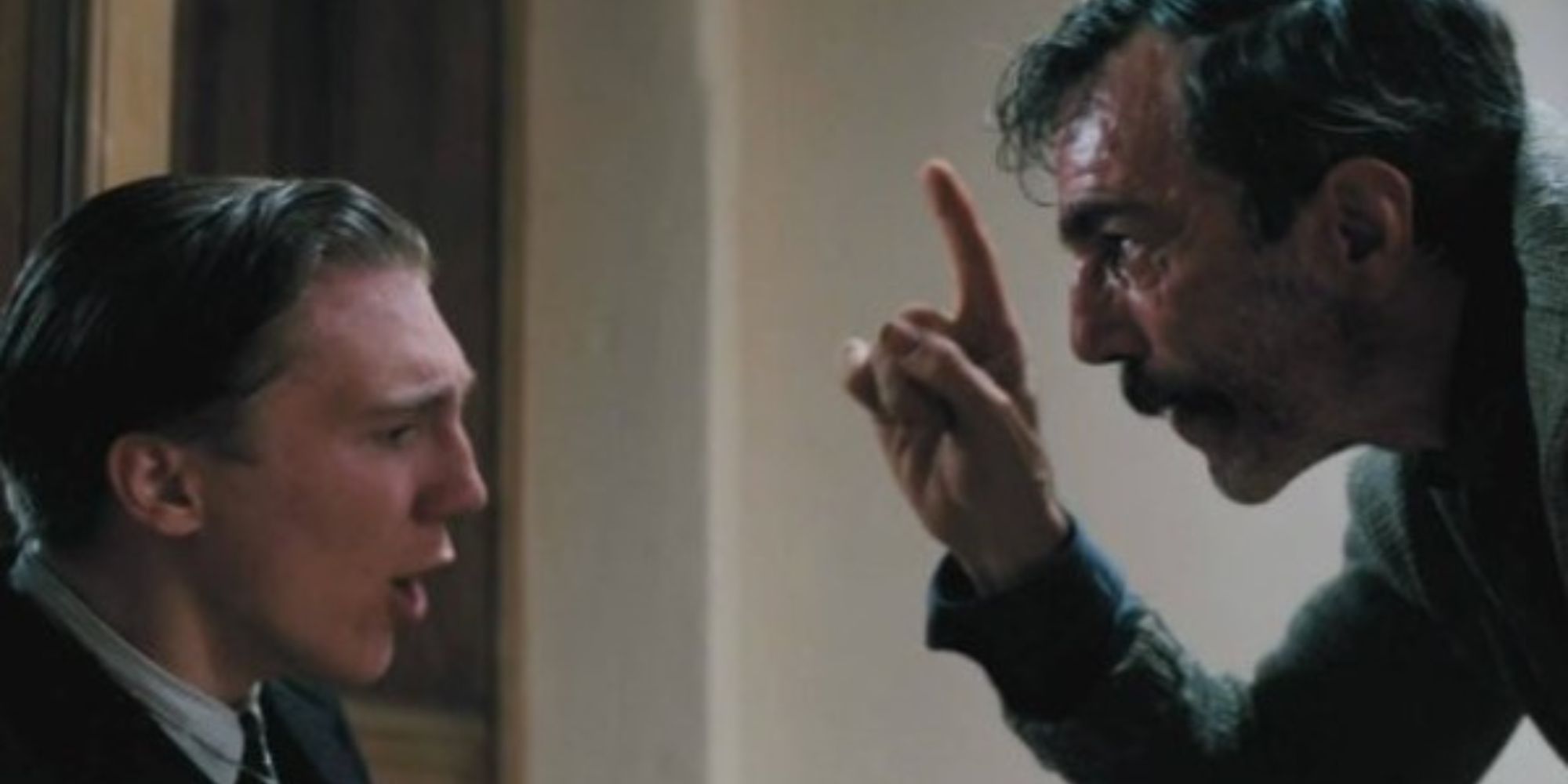In the late 2000s, when the Internet was transitioning from its Wild West era to its current social media dominated state, there was a meme: a short video clip taken out of context from Paul Thomas Anderson’s then-recent movie, There Will Be Blood, starring Daniel Day-Lewis. In the clip, Daniel Plainview (Day-Lewis), a sweaty, mustachioed man, stands in front of another man, who is seated on the left side of the frame and looks quite distraught. The man with the mustache has his finger pointed down right in front of the other man’s nose, as though he’s about to flick it. Speaking with great conviction, he says something that, without context, sounds completely absurd. “I…drink…your…milkshake!” He punctuates that statement by making a loud, drawn-out slurping noise with his mouth, withdrawing his finger before shouting once more. “I drink it up!”
No one’s mom lip-synced along to it on TikTok, but the clip became a meme regardless. It became widely played on sites like YouTube and ytmnd.com, a website that was once a hotspot for internet memes. Techno remixes were made, along with videos interpolating the song “Milkshake” by Kelis. People re-enacted it wearing mustaches made of construction paper. Saturday Night Live did a sketch where Plainview (Bill Hader, doing an uncanny impression) traveled the country drinking people’s milkshakes with a comically large straw. It was funny for a while, then faded away - this was back when memes faded away - leaving “I drink your milkshake” as the only exposure many people had to There Will Be Blood.
What those people may not know is that that scene, as memorable as it is, comes at the very end of the film. For the majority of its two-and-a-half-hour runtime, There Will Be Blood is a sprawling epic about a ruthless oil baron in the American West, with all the gravitas that implies. With its grandiose shots of the desert landscape and the weight of history on its shoulders, it feels like an important movie - certainly not the kind of movie where a crazy guy screams at Paul Dano about milkshakes. But as the film takes the action from the frontier to the Roaring Twenties for its epilogue, it unravels alongside its protagonist, revealing the manic, violent id of modern capitalism.
The Frontier Is Daniel's Opportunity to Be More than a Cutthroat Businessman
It should be noted that the film does not technically take place in the frontier, as the U.S. government declared the end of the frontier back in 1890. But progress moved slowly in the West, and even in 1911 there were towns like Little Boston, California, with no water for their crops and no schools for their children. When Daniel sweeps in, preparing to drill for the vast reservoir of oil beneath Little Boston, he sells himself to the townspeople as a benefactor. For the price of letting him drill for oil, he promises to build schools and provide irrigation so that “bread will be coming right out of your ears” - and indeed, his presence does seem to help the community grow and prosper. The frontier gives Daniel an opportunity to present himself as something more than a cutthroat businessman (although he is one, without apology.) This is Daniel as he’d like to be seen, perhaps even Daniel as he’d like to see himself: a builder, a creator, a man laying a foundation for future generations.
Daniel Day-Lewis Plays Daniel Plainview as an Apex Predator
Daniel Day-Lewis, in one of cinema’s greatest performances, plays Daniel Plainview as an apex predator trying to act like a man - and mostly succeeding. For much of the film, he exercises a great deal of restraint, speaking with steady authority and remaining polite. Even when he loses his temper, as he does with a condescending negotiator from Standard Oil, he doesn’t raise his voice: he delivers a threat to cut the man’s throat in a stern, almost paternal manner. His words are clear and purposeful; he likes to say that he favors “plain talk,” and while it’s clearly a way to get people’s guard down it’s not entirely untrue. When he uses lethal violence, as he does against his fake half-brother, he suppresses his obvious rage, his hand barely shaking as he holds the pistol. The beast is kept in check.
Then the film skips to 1927, and Daniel Plainview doesn’t have to pretend anymore. Having spent fifteen years in a palatial mansion pickling in whiskey and misanthropy, he glares at every visitor, even his adopted son H.W., with drunken contempt. He mumbles, he leers, he mocks. He can still speak eloquently, but he occasionally lapses into petulant taunting: “I’d like to hear you speak instead of your little dog, woof woof woof woof woof woof!” He’s rich enough for several lifetimes - he no longer needs charisma, and no longer needs to sell himself as a builder. He can finally do what he’s wanted to do all along.
And so we arrive in Daniel Plainview’s austere, white-walled bowling alley. In contrast with the dingy, dusty locations of the frontier, the bowling alley is cold and sterile, with polished wooden floors and a scoreboard that probably hasn’t been used in years. It may look old-fashioned to our eyes, but for 1927 it was the height of luxury. It’s the most modern-looking room in the whole movie, and yet it’s also where its most shocking moments of cruelty and violence take place. Eli Sunday (Paul Dano), the smug preacher who had earlier humiliated Daniel, comes crawling back offering to sell an oil-rich property; Daniel agrees, but only if Eli declares himself a false prophet, and religion a superstition. Fighting back tears of shame, Eli does so, only for Daniel to reveal that his land is worthless: using the surrounding lands, he drained the oil out from under his nose.
As Eli slumps over and bursts into broken tears, Daniel seems to come alive for the first time. His movements become more animated: he bobs his head, he shoves Eli’s shoulder like a high school bully, he claps his hands for emphasis. When he tells Eli that he’s “just the afterbirth that slithered out of his mother’s filth,” he has an almost dreamy smile on his face. When he says “they should have put you in a glass jar on the mantelpiece,” he seems to savor the phrase: “glass jaaaaaar.” Eventually, he starts bellowing the word “drainage,” braying it like a donkey: “draaaaaay-nage! Draaaaaay-nage, Eli, you boy!” By now, he’s quite literally salivating over his enemy’s destruction; he’s no longer a drunk old wretch, he’s a predator revived by the smell of blood.
Confusion Around the "Milkshake" Monologue Is Intentional
The “milkshake” monologue may be confusing out of context, but it’s supposed to be a bit confusing in context as well. Daniel is using a metaphor to describe how he was able to suck the oil out from under Eli’s land, but coming from a man as straightforward and practical as Daniel, someone who values “plain talk,” it seems to come out of nowhere. Even Eli, in the depths of despair, seems utterly baffled as Daniel mimes a giant straw and does a funny little waddle towards him. That confusion, however, is the intended response: Daniel knows he’s so powerful that he doesn’t need to make sense anymore.
As Daniel throws bowling balls at a panicking Eli, howling “I am the third revelation!”, it’s frightening to see how far this man, ruthless but dignified, has fallen. But did Daniel Plainview really fall? Or is this where he wanted to be all along? He made a fortune in the oil business, and through that business he helped communities - maybe even the whole West - prosper. But being a creator doesn’t satisfy Daniel: as he tells his fake half-brother earlier in the film, “I want no one else to succeed.” He wants to destroy things. He wants to see his enemies grovel and beg before bashing their brains in with a bowling pin. He wants to satisfy every one of capitalism’s worst impulses, and thanks to the society he helped build, he can do it with impunity. At the end of There Will Be Blood, Daniel says “I’m finished.” Not even he seems to believe it: as the 20th century rolled on, men like Daniel were just getting started.




